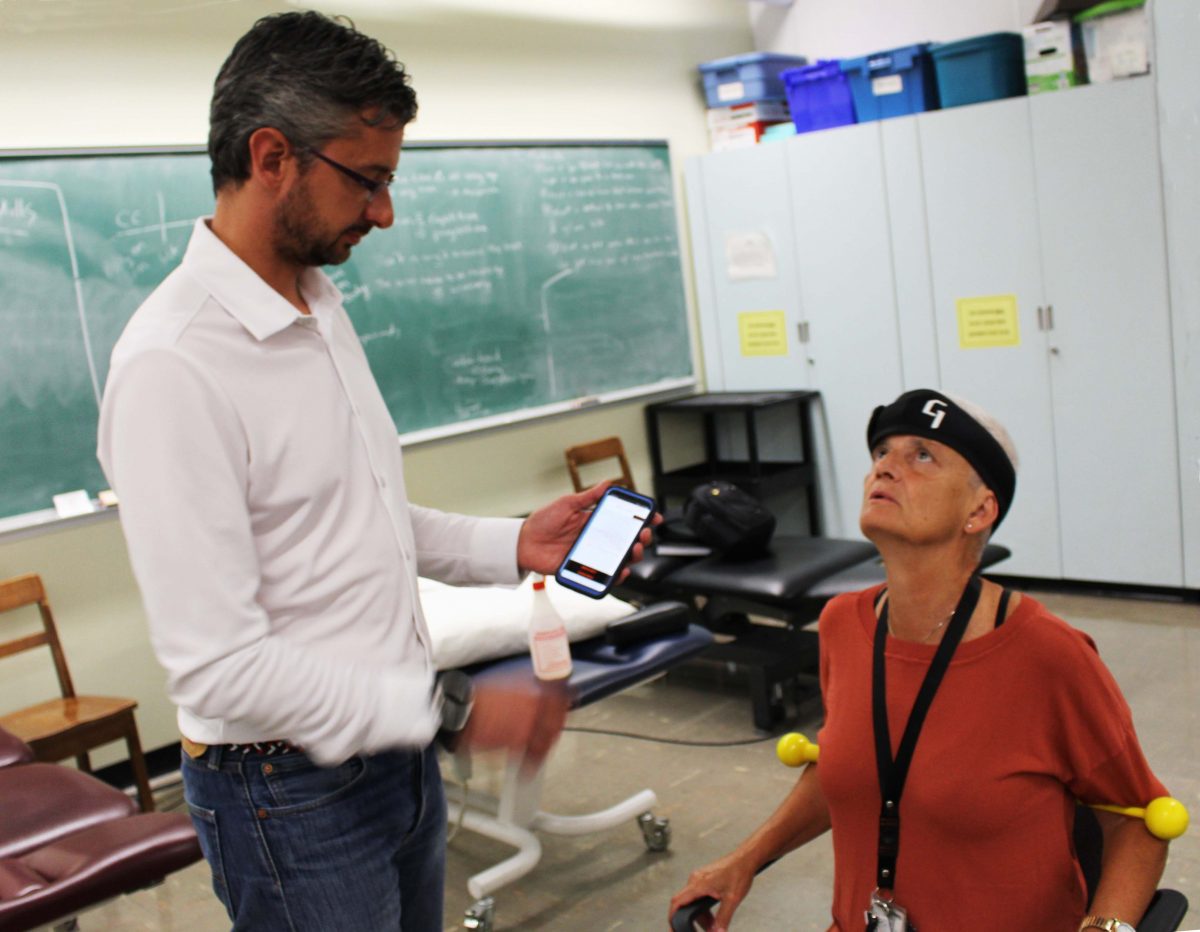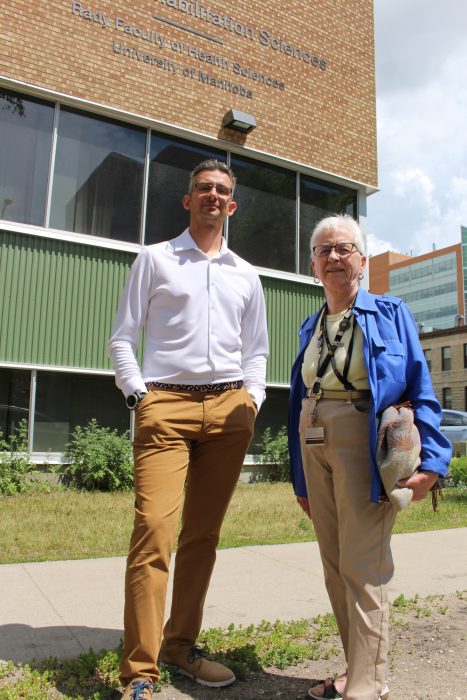
Dr. Néstor Pérez Mallada and Dr. Barbara Shay demonstrate cost-effective tools used to detect abnormalities in neck movement.
Study connects U of M to international physiotherapy database
A new study at the College of Rehabilitation Sciences (CoRS), Rady Faculty of Health Sciences will represent Canada in an international database that aims to help physical therapists detect abnormalities in neck movement in order to better understand causes of neck pain.
The study, which looks at range of movement and velocity in healthy adults from Spain, Mexico, France, the United States and Canada, is being led by Dr. Néstor Pérez Mallada from Pontifical University Comilla in Madrid and Dr. Barbara Shay, head of the physical therapy department in CoRS.
Mallada’s focus is on biomechanics equipment, which he notes can be very expensive. The “Gold Standard” in biomechanics, he noted, uses 3D analysis and optoelectronic cameras to measure human movement. These tools are very accurate and reliable, he said, but they cost approximately $200,000 and require laboratory space and an onsite technician.
“There is a need for something that students and clinicians can use that is very fast, very easy to use and inexpensive,” he said, adding there are several emerging devices that work with compatible smartphones and tablets.
The study uses a wireless digital device that Shay said may one day replace the traditional hand-held manual goniometers typically used in rehabilitation therapy. The thousand-dollar device, is worn on the subject’s forehead in a specially designed headband and its measurements are sent to a compatible mobile device with much greater accuracy than a goniometer, according to Shay.
“There’s about 10 degrees of error in a regular goniometer, and this has a max of three degrees of error,” Shay said. “It’s also not expensive and portable. You can basically take it to a person’s home and do it there. Any physiotherapist who graduates could buy one and use it in their practice.”
In addition to geographic location, the study will consider how physically active each participant is and how much time they spend in front of screens, particularly looking down at their phones, which can cause neck strain.
Visiting scholar
Mallada is visiting the Rady Faculty of Health Sciences as part of the Juliette Cooper Visiting Scholar Program. A physical therapist, master in health law and doctor in biomedicine and health science, he is the first scholar invited as part of the program, which replaces the Juliette Cooper Lectureship in Rehabilitation Sciences.

Dr. Néstor Pérez Mallada with Dr. Juliette Cooper.
Juliette ‘Archie’ Cooper, professor emeritus in the department of occupational therapy, established the lectureship at the time of her retirement as a way of contributing something back to the University of Manitoba. She said her love of research and dedication to the university are the main reasons she hasn’t fully retired.
“I am technically retired as of 2005, but I seem to be unable to conform to that status,” Cooper said. “I originally set up the lectureship to promote research excellence in what was then the School of Medical Rehabilitation. The Visiting Scholar Program now builds on the research expertise in CoRS to create partnerships with other investigators. I am delighted to see this evolution.”
The program brings in a scholar who has been vetted by faculty and gives a presentation as part of the college’s Illuminate Speaker Series. Visiting scholars are invited to the college for one month or more to give lectures, work with students and collaborate with faculty. Scholars are given an honorarium to offset cost of travel and accommodation.
Mallada hopes that his visit to the U of M will lead to future collaborations with his home university.
“I would like to explore the possibility for scholarships so students can come to Canada from Spain to study, or vice versa,” he said.






